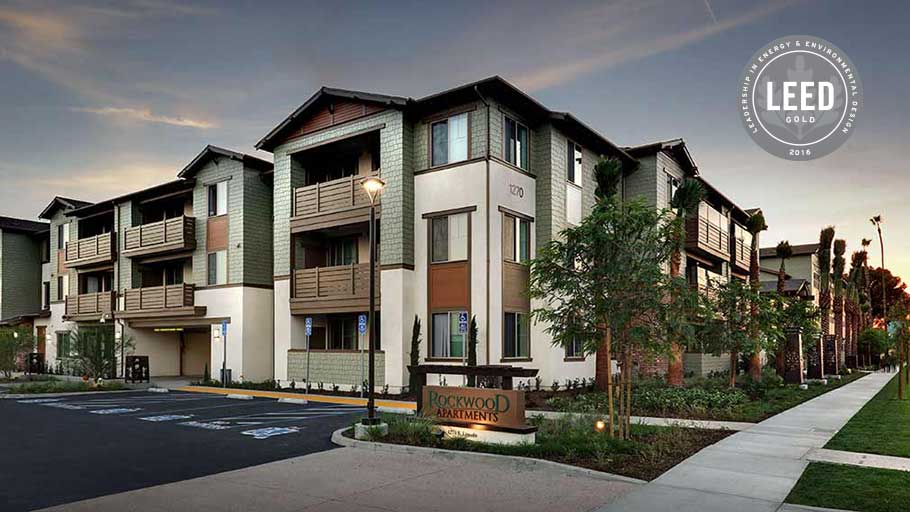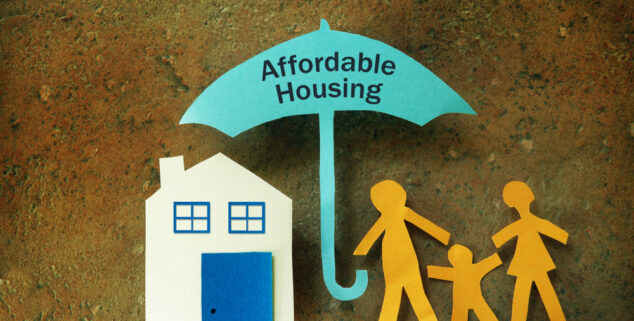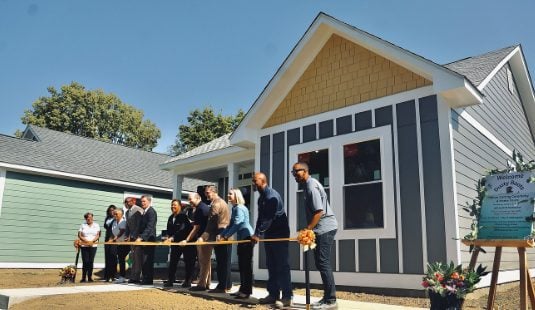Economical Homeownership Options for First-Time Homebuyers
As the housing market remains to progress, new homebuyers deal with unique obstacles in securing economical homeownership alternatives. Different resources, consisting of entitlement program programs, low-down-payment home mortgages, and targeted gives, have emerged to alleviate economic pressures. These efforts not only promote homeownership however likewise foster community security and economic growth. Browsing these choices can be complex, and understanding which paths are most useful requires careful consideration. What approaches can prospective property owners employ to optimize their possibilities in this landscape?
Government Support Programs
Government support programs play a critical role in making homeownership possible for many people and family members. These programs intend to alleviate the economic problem connected with buying a home, especially for novice purchasers. By providing monetary aid, gives, and tax rewards, government efforts help link the space between increasing real estate costs and the acquiring power of possible home owners.
Numerous programs are offered at the federal, state, and neighborhood degrees. The Federal Housing Administration (FHA) supplies insurance policy on fundings, enabling loan providers to use extra positive terms, such as reduced down payments and minimized passion rates. Additionally, state and neighborhood governments frequently have their own initiatives, which may consist of down settlement aid programs, buyer education courses, and beneficial home mortgage terms.
These programs are designed to attend to the one-of-a-kind challenges encountered by low- to moderate-income families, including restricted financial savings and credit history. By promoting a setting where homeownership is extra available, federal government aid programs not only support private goals yet additionally add to area stability and economic development. Understanding and using these sources can significantly improve the leads of effective homeownership.
Low-Down-Payment Mortgages
For several hopeful property owners, low-down-payment home mortgages provide a practical pathway to homeownership, especially in today's difficult housing market. These home loan alternatives generally call for down repayments varying from 3% to 5%, making it less complicated for newbie purchasers to go into the marketplace without the problem of saving for a substantial down settlement.
Numerous loan providers supply low-down-payment programs, including standard finances backed by Fannie Mae and Freddie Mac, in addition to government-backed choices like FHA car loans. These home loans are made to fit individuals with restricted cost savings while still offering affordable rate of interest prices. Significantly, they allow purchasers to preserve even more cash money for various other essential expenditures, such as relocating costs, home examinations, and prospective improvements.
Nevertheless, possible home owners ought to be conscious of the trade-offs connected with low-down-payment mortgages. A smaller deposit may lead to greater regular monthly payments and the need of personal home loan insurance policy (PMI), which shields lending institutions in case of default. For that reason, it is vital for new customers to conduct extensive research study and seek advice from with home loan specialists, guaranteeing they pick a low-down-payment option that straightens with their long-term financial goals. Affordable Homeownership.
First-Time Buyer Grants
Several newbie property buyers discover that gives can substantially ease the economic burden of acquiring a home, complementing low-down-payment home mortgage options. These gives, commonly offered by state and non-profit organizations or neighborhood governments, use financial help that does not call for payment, making them an my sources attractive alternative for those going into the real estate market.
Qualification for first-time homebuyer gives normally depends upon earnings, creditworthiness, and the acquisition rate of the home. Numerous programs are created to aid reduced- to moderate-income family members, guaranteeing that support reaches those that require it most. The application procedure often includes documents of financial status, buyer education courses, and occasionally also a commitment to remain in the home for a specific period.
The amount useful differs widely, with some grants offering several thousand bucks to aid cover closing expenses or deposits. Looking into readily available grants in your location is essential, as programs often alter and may have particular demands. By leveraging these economic sources, new homebuyers can make homeownership more accessible, inevitably attaining their dream of owning a home while mitigating the initial monetary strain.
Innovative Community Initiatives
Cutting-edge area campaigns are playing a crucial duty in increasing budget friendly homeownership alternatives for homeowners. These campaigns often include joint efforts in between regional federal governments, non-profit organizations, and economic sector stakeholders to develop lasting housing services customized to neighborhood needs.
One significant technique is the facility of neighborhood land depends on (CLTs), which permit residents to purchase homes while the land continues to be owned by the count on. This model helps maintain cost check it out over time and protects against speculative cost boosts. Furthermore, CLTs typically supply instructional sources and assistance services to empower first-time homebuyers.
Another reliable campaign is the advancement of mixed-income housing jobs, which blend inexpensive systems with market-rate homes. This method promotes inclusive communities and reduces the stigma commonly connected with low-income real estate. Additionally, neighborhood governments are increasingly sustaining zoning reforms to facilitate the building and construction of accessory dwelling units (ADUs), which can provide additional rental income for property owners while boosting housing accessibility.

Tips for Budgeting and Saving

Following, develop a specialized interest-bearing account particularly for your future home acquisition. Aim to conserve a percent of your income wikipedia reference continually, preferably 20% or more, to develop a significant deposit. Make use of automation devices, such as direct down payment or automatic transfers, to make saving simpler and a lot more constant.
In addition, take into consideration embracing the 50/30/20 regulation: allocate 50% of your revenue to needs, 30% to wants, and 20% to cost savings and debt payment - Affordable Homeownership. This method promotes balanced financial health

Verdict
In summary, cost effective homeownership options for new property buyers include different sources such as federal government aid programs, low-down-payment home mortgages, and grants. By leveraging these monetary devices, people can browse the intricacies of homeownership, eventually contributing to a much more equitable housing landscape.
As the real estate market continues to evolve, novice buyers encounter one-of-a-kind challenges in safeguarding inexpensive homeownership options. By fostering an atmosphere where homeownership is more available, government aid programs not just sustain private aspirations but likewise add to community stability and financial development. By leveraging these economic resources, first-time buyers can make homeownership much more easily accessible, ultimately achieving their dream of possessing a home while alleviating the preliminary financial pressure.
In summary, inexpensive homeownership alternatives for first-time property buyers incorporate different sources such as government aid programs, low-down-payment home mortgages, and gives. By leveraging these economic devices, people can navigate the intricacies of homeownership, inevitably contributing to a more equitable housing landscape.